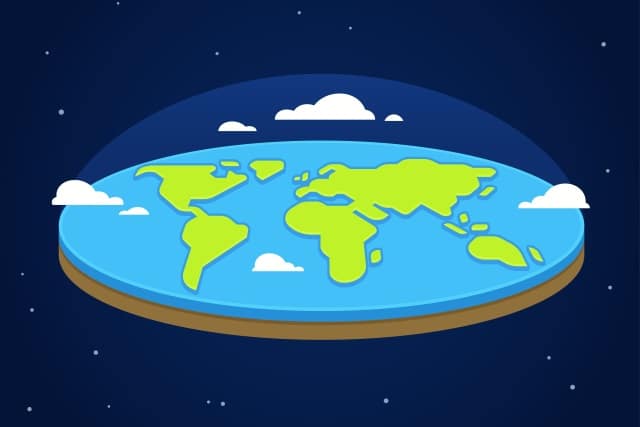YouTube is to blame for the increase in Flat Earthers

In recent years it seems that there has been an astonishing increase in the number of Flat Earthers -- people who believe that the Earth is flat, and anything that suggests otherwise is a conspiracy. The thinking is that, for some reason, NASA, international government, scientists and so on are all desperate to convince people that the Earth is round when it is in fact flat.
While Flat Earther numbers are still relatively small, the increasing membership of this school of thought in the face of overwhelming evidence to the contrary is both confusing and worrying. So just what is going on? The rise in internet usage has been blamed for the spread of fake news, conspiracy theories and all manner of bizarre ideas, and a new study has concluded that one particular site is responsible for the increasing support for the Flat Earth theory. That site is YouTube.
See also:
- Fake news: OpenAI's 'deepfakes for text', GPT2, may be too dangerous to be released
- Facebook is ready to fight back against anti-vaxxers
- Health experts call on Facebook to close anti-vaxxer groups
Google's video site has been blamed for the spread of scientifically unsound theories about planet Earth following research by Texas Tech University. One of the problems with YouTube -- like many social networking sites -- is that it tends to keep users trapped in a bubble, and algorithms that recommend content serve only to exacerbate the problem.
The research was led by Dr Asheley Landrum who says:
There's a lot of helpful information on YouTube but also a lot of misinformation. Their algorithms make it easy to end up going down the rabbit hole, by presenting information to people who are going to be more susceptible to it.
She calls upon other users and scientists to create more videos offering proof and explanation for a round Earth, but concedes that it may be an uphill battle:
Believing the Earth is flat in of itself is not necessarily harmful, but it comes packaged with a distrust in institutions and authority more generally. We want people to be critical consumers of the information they are given, but there is a balance to be had [...] We don't want YouTube to be full of videos saying here are all these reasons the Earth is flat. We need other videos saying here's why those reasons aren't real and here's a bunch of ways you can research it for yourself.
The efficacy and reliability of social algorithms have been questioned before, with research showing that it can be hard to break out of a cycle of recommendation to find content that offers different points of view.
Image credit: Sudowoodo / Shutterstock
